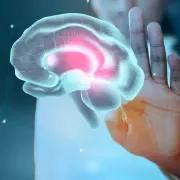10 Neurological Benefits of Exercise - Positive Psychology
In This Article
10 Neurological Benefits of Exercise - Positive Psychology
Jaymala
Updated on June 06, 2024
Medically verified by Dr. Arya
Fact checked by Dr. Pournami

Neurology
10 min read
Our body works at its best when it is used, exercise not only makes us look good but also feel good.
Neurology deals with the treatment of disorders and diseases of the nervous system.
As a balanced diet is needed to maintain our body, exercise is needed to regulate smooth functioning of our body without any stiffness or pain anywhere.
If you really need motivation for your exercise routine we have a list here. This is what positive psychology is!
Karetrip is here for you to give you a list of neurological benefits of exercise which will not only motivate you to include exercise in your daily routine but also give you the reason for it.
Releases Feel Good Hormones
Exercise releases few positive hormones which are necessary for us to have a positive mood.
- Exercise releases endorphins. Known as ‘feel good hormones’, Endorphins interact with the brain receptors and give a feeling of happiness. Thus it contributes to a positive mood for us.
- Exercise also releases dopamine, which is responsible for a feeling of satisfaction and motivation.
- Serotonin which regulates mood, appetite, and sleep are also released with exercise. It brings a feeling of happiness and emotional stability.
Reduces Tension And Anxiety
- Exercise reduces stress hormones such as cortisol and maintains wellness of our body.
- It removes any stiffness in the body and increases the energy level. It reduces tension and anxiety and brings out a sense of calmness in our body.
- It is a healthy distraction from stress and worries, allowing us to focus on the present moment, which can promote relaxation and relief from stress.
Increases Brain Plasticity
- Exercise stimulates the process of neurogenesis in which new neurons are produced which enhance our mood.
- Exercise increases the release of neurotransmitters, thus enhancing neutral communication.
- Physical activity enhances the brain's ability to store and release information, leading to improved cognitive function and academic performance.
- Regular physical activity can help protect against age-related issues such as Alzheimer's and Parkinson's disease.
Enhances Cognitive Function
-
-Regular Exercise increases blood flow to the brain thus enhancing cognitive function of the brain. It balances neurotransmitter levels which contribute to improved mental clarity and thus improves overall well being.
-
Exercise strengthens neural connections, leading to cognitive enhancement.
-
Regular exercise improves concentration, thus sustaining focus on tasks for a longer time.
Promotion of Neurogenesis
Exercise stimulates the production of various growth factors in the brain, including brain-derived neurotrophic factor and insulin-like growth factor.
Physical activity increases blood flow to the brain, which supports the production of neural stem cells in brain regions such as the hippocampus.
Regular exercise has anti-inflammatory effects that support the growth of new neurons. Balanced neurotransmitter levels promote the production and survival of neural progenitor cells, which in turn uplift our mood.
Better Sleep Quality
-
Physical activity maintains our sleep pattern according to the body's internal clock and external factors. It improves sleep-wake cycles and good quality sleep.
-
Exercise increases body temperature during and immediately after activity. The cooling of our body after exercise can promote sleep onset by maintaining the natural drop in body temperature.
-
Engaging in regular physical activity can increase total sleep duration. Exercise helps regulate sleep patterns, allowing individuals to achieve longer and more restful periods of sleep, leading to improved sleep quality overall.
Do You Know Exercise Balances Neurotransmitters?
-
Exercise stimulates mood-regulating effects through the release of serotonin. It regulates good moods.
-
Exercise increases Dopamine which is involved in motivation, reward, and pleasure, and its release during exercise contributes to feelings of happiness and satisfaction.
-
Exercise increases alertness and cognitive function of the brain.
-
Regular exercise helps maintain optimal neural communication and function. Balanced neurotransmitter levels enhance mood, cognitive function, and overall mental well-being of the body.
 10 min read
10 min readChoosing the Right Neurology Hospital: Factors to Consider for Patients and Families
 10 min read
10 min readTop 10 Neurology Hospitals in India
 8 mins
8 minsTop Hospitals in Bangalore: Find the Best Medical Care
Get a Callback Now
Stimulation of Brain Growth Factors
Exercise releases a protein that supports growth, and survival. It enhances the formation of new connections in the brain. Exercise enhances cerebral blood flow, oxygen delivery, and nutrient supply to brain cells, supporting neuronal health and function.
Improves Executive Functioning
Exercise activates the brain and functions such as planning, and decision-making.. Regular exercise improves cognitive control, the ability to regulate thoughts, emotions, and behavior in accordance with goals. Exercise enhances attentional control, allowing individuals to sustain focus on tasks and resist distractions. Physical activity improves attention, leading to better task performance and productivity. Engaging in regular exercise improves working memory capacity. Physical activity strengthens neural networks involved in working memory, improving in information processing and problem-solving methods.
Alleviation of Cognitive Decline
- Physical activity promotes the production of some neurotrophic factors, thus protecting against age-related brain changes.
- Regular exercise enhances the brain's capacity to adapt and reorganize in response to any experience.
- Exercise increases cerebral blood flow, delivering oxygen and nutrients to brain cells and removing waste products. It reduces the risk of cognitive decline and neurodegenerative diseases.
- Exercise has anti-inflammatory effects, reducing inflammation in the brain and eliminating the risk of cognitive impairment.
Exercising for at least half an hour on a daily basis can bring about a wonderful positive change in our body. It is not just physical but also mental. For our overall well-being we should make exercise as part of our routine in any form.
Exercise should be an integral part of our routine as it promotes our overall well-being.
Regular physical exercise helps in proper flow of oxygen to the brain and promotes better mood.
Exercise stimulates the production of brain growth factors which support our survival.
Exercise improves our cognitive functions leading to better decision making.
Exercise promotes better sleep patterns.
Physical activity promotes the release of “feel good” hormones and thus enhances our mood and quality of life.

